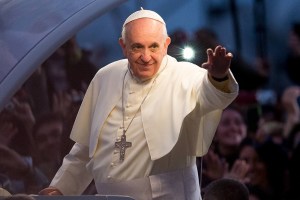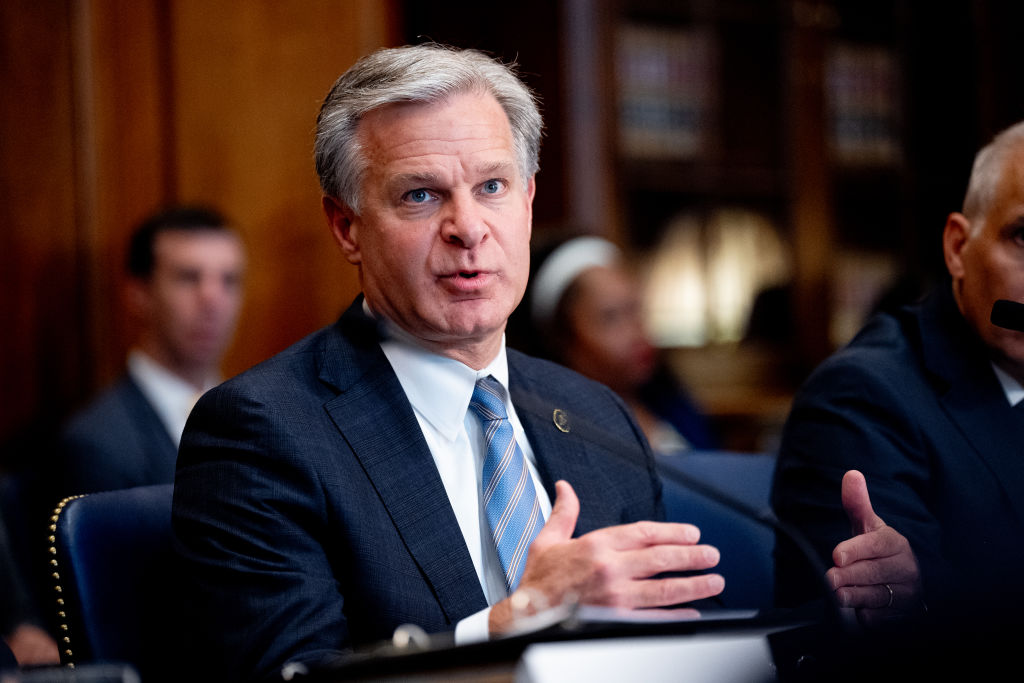Spanish restaurants in Germany are relatively rare, but not nearly as rare as biographies of General Franco. So when the Spanish-born waiter in Bonn’s Casa Pepe approached my table, it struck me as an opportune moment to solicit his opinion about the former dictator. ‘No sé mucho,’ he shrugged. ‘I don’t know a whole lot.’
Just imagine it: an unexceptional army cadet becomes a general in his mid-
thirties, leads the Nationalists to victory in a bloody civil war, wields absolute power for close to three decades, and then, barely a generation later, his memory is reduced to an indifferent shrug.
The contrast with Germany’s treatment of its totalitarian past could not be greater. Students are compelled to study every angle of the Third Reich. School trips are organised to former concentration camps. The past is ever present, lest it be repeated.
Not so in Spain. Franco and Francoism are effectively off-limits, swept under the carpet of history in a nationwide act of amnesia. The old bugger is dead and gone, the theory seems to go. Let the nation move on, rid at last of his suffocating shadow, able to breathe freely once again.
;768:[300×250,336×280,320×100];0:[300×250,320×100,320×50]”]This all makes Enrique Moradiellos’s new biography of the Generalíssimo long overdue. Written explicitly for an English-speaking readership, the book makes up for lost time, providing an extensive introduction to both Franco and Francoism. The result is a three-part structure that examines the man, the dictator and the regime in turn.
Part One is a conventional biography. Born in 1892 into a lower-middle-class family from the northernmost tip of Spain, the young Francisco revealed little in his early years that pointed towards a dictator-in-waiting. Indeed, so weedy was the country’s future strongman that his classmates called him ‘Little Matchstick’.
Franco’s star began to rise in Morocco, where he distinguished himself as a military strategist among Spain’s elite Army of Africa. An obsessive nationalist and militant Catholic all his life, he watched with dismay as Spain’s newly elected Republican-Socialist government began a process of democratic reform in the early 1930s — including a thwarted attempt to authorise autonomy for Catalonia.
The victory of the left-leaning Popular Front in 1936 persuaded Franco that things had gone far enough. It was time for the army to step in. Initially unsuccessful in taking Madrid, Franco’s counter-insurgency forces embarked on a slow war of attrition. For Spaniards, it was their first taste of his ruthlessness. As Moradiellos notes, Franco didn’t just want victory: ‘He wanted… the total physical removal of an enemy considered the Anti-Spain.’
What follows is the portrait of a classic dictator: power-hungry, paranoid and puffed up by an unshakable sense of messianic mission. Yet, for all the author’s evident erudition, glimpses of the man behind this monumental ego are too fleeting. Indeed, it’s not until the end — in a throwaway line about Franco bingeing on TV during the 1974 World Cup — that we’re given any inkling of his private life.
;768:[300×250,336×280,320×100];0:[300×250,320×100,320×50]”]Maybe, just maybe, the private was the public: Franco the single-minded, mono-layered political beast. That would certainly explain why this account comes to life when Moradiellos turns his attention to the ‘cult of the Caudillo’ during the Franco era. Spain’s ultimate dictator was a charismatic leader in the archetypal Weberian sense: an ‘immense Caesar’ who conjoined the might of the Church, military and state in a single person.
Moradiellos’s gift is less as a biographer than as a master political theorist. If that’s your cup of tea, then the book’s third and final section is well worth waiting for. Historians have long argued about the precise nature of Francoism. Was it fascist or totalitarian, was it a military dictatorship or an example of modern despotism, was it Bonapartist (as the author believes) or Hitler-esque? Moradiellos provides chapter and verse on this historiographical debate. For the non-specialist reader, however, this quickly feels academic and arcane.
As a primer on a little-known period of Spanish history, Franco: Anatomy of a Dictator does an admirable job. But an easy read it isn’t. This is old-school history, and Moradiellos is not one to let a good story get in the way of facts and footnotes. The tripartite structure begins to weigh heavily too, tied as it is to the same repeated chronology.
And there are more serious shortfalls. The first relates to Franco’s brutality. There’s a brief recognition — more of an afterthought really — that Franco’s regime was seen as ‘always anti-democratic’ and ‘counter-revolutionary’. But mention of these revolutionary forces is almost completely absent, let alone the violence meted out to them. If only as corroborating proof of Franco’s authoritarianism, this feels like a major oversight.
Then there’s the question of legacy. Just because Spaniards choose to turn a blind eye to the Franco regime does not make it go away. Comparatively speaking, this is recent history. The sight of Spain’s federal police storming the streets of post-referendum Barcelona brings it all home.
Intricate and informed though this biography is, it assumes that Francoism ended with the dictator’s death. It did not. Millions of Spaniards today still recall what it was to live under the dictatorship’s asphyxiating grasp; but how this memory shapes the Spain of today is anyone’s guess. As with the waiter in Casa Pepe, the question appears to inspire in Moradiellos a peculiar indifference.
;768:[300×250,336×280,320×100];0:[300×250,320×100,320×50]”]
























